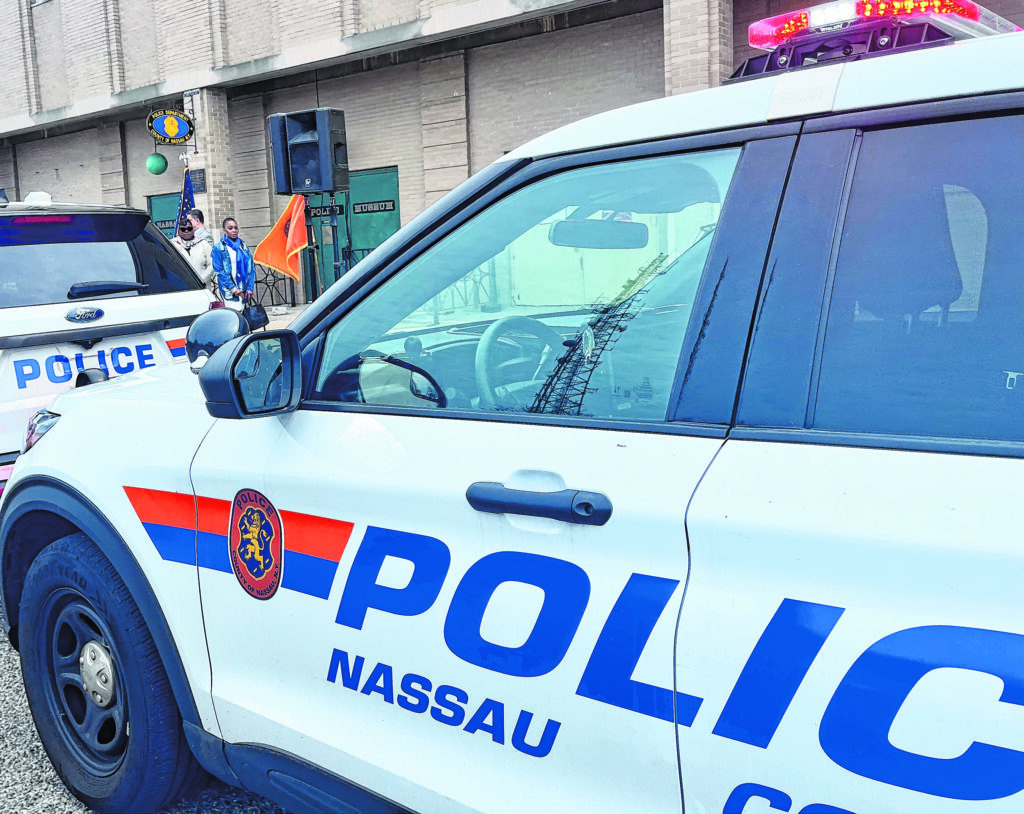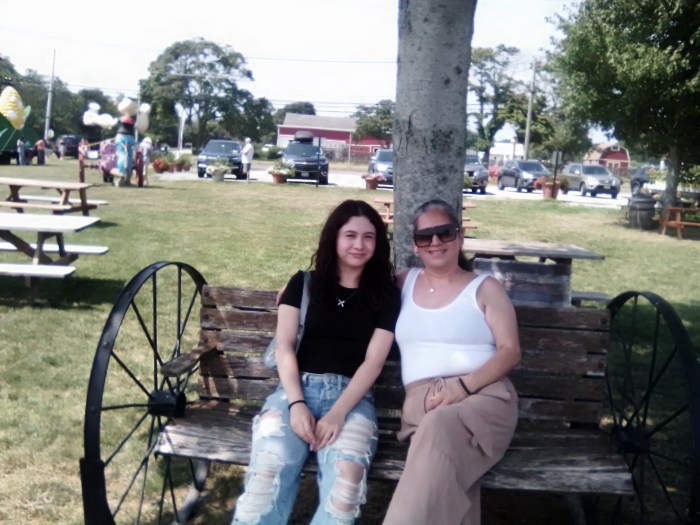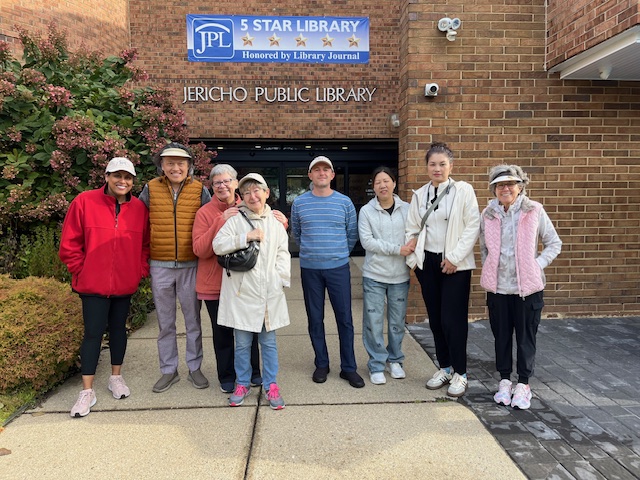Starting on Sept. 13, Nassau County Police Department Second Precinct Problem Oriented Officers began a Project 21 investigation that led to multiple arrests.
“The Project 21 investigation targets the sale of nicotine and alcohol products sold to underage agents,” a press release from the Nassau County Police Department stated. “The agents entered the following establishments where the store employees did not ask for the proper identification and sold nicotine/alcohol products to the police agents.”
The following stores sold alcohol products to underage agents:
BP Gas Station located at 300 N. Broadway, Hicksville.
Express Mini Mart located at 5 Bethpage Road, Hicksville.
Mobil Gas Station located at 325 S. Oyster Bay Road, Plainview.
Each cashier caught selling the products is charged with unlawfully dealing with a child in the first degree and prohibited sale of an alcoholic beverage.
The following store sold a tobacco product to an underage agent:
A Smoke Shop located at 316 N. Broadway, Jericho. The cashier is charged with unlawfully dealing with a child and selling age restricted products.
All four defendants were each issued an appearance ticket returnable on Wednesday, Oct. 4 to First District Court, 99 Main Street Hempstead.
“We continue to work with the Nassau County Police Department to identify issues that impact our quality of life, and commend the police for stopping the illegal sale of substances to underage children,” said Town of Oyster Bay Supervisor Joseph Saladino.
According to the Centers for Disease Control and Prevention, the Minimum Legal Drinking Age (MLDA) saves lives.
The MLDA in the United States is 21, but prior to 1984, the legal age to buy alcohol varied by state.
States that increased the legal drinking age to 21 saw a 16 percent decrease in motor vehicle crashes, decreased drinking in people ages 18 to 20 years old and protection from other outcomes, such as alcohol and drug dependence, adverse birth outcomes, suicide and homicide.
However, enforcement of the law is an important part of making sure nobody under the age of 21 can buy alcohol.
“Enforcement of laws prohibiting alcohol sales to minors reduced the ability of youthful-looking decoys to purchase alcoholic beverages by a median of 42 percent,” stated a fact sheet from the Center for Disease Control and Prevention.
In fact, in 2014, the New York City Department of Health and Mental Hygiene and the New York State Liquor Authority found that 58 percent of the licensed alcohol retailers in the city sold to underage decoys.
According to the National Institute of Alcohol Abuse and Alcoholism, the complex developmental changes in the brains of adolescents that bring about cognitive, emotional and social skills necessary to survive and thrive make them especially vulnerable to alcohol exposure.
While adolescents tend to drink alcohol less than adults, when they do drink, they tend to binge drink. A 2021 National Survey of Drug Use and Health found that 8.3 percent of people ages 12 to 20, or 3.2 million people, reported binge drinking in the past month.
Adolescents’ ability to readily change in response to experiences, as well as to explore or take risks, also make them more vulnerable to the short and long term negative effects of alcohol. In general, underage drinking can lead to unsafe behaviors.
Steven Chassman, the executive director of Long Island Council on Alcoholism and Drug Dependence (LICADD), knows all too well the importance of preventing underage alcohol and drug use.
“We have great partnerships with Nassau and Suffolk law enforcement, so we commend law enforcement for doing these sting operations, whether it’s products with high levels of nicotine, whether it’s illegal sale of marijuana and THC products, because we’re seeing that across Nassau and Suffolk even though they don’t have licenses,” Chassman said. “Let us not forget that alcohol remains the most lethal drug in America year after year. We know from the Centers for Disease Control and the National Institute on Drug Abuse that the incidents and the rate of use among adolescents and young adults continues to increase in a wide array of drugs, first and foremost alcohol, nicotine and THC products.”
Chassman, based on research he’s reviewed, said that people who can stay engaged in positive outlets like sports and academics, and avoid the use, misuse or dependence on drugs and alcohol, are less likely to develop a potential substance use disorder. People who begin using drugs and alcohol in their early adolescence, ages 12 to 15, are more likely to develop a substance use disorder.
“We used evidence-based prevention models in every school from K to 12, teaching people healthy communication skills, teaching them how to negotiate stress and anxiety,” Chassman said. “When we start assigning mind and mood altering drugs at a young age on the emotional spectrum, those are really the dangerous seedlings of what could be a substance use disorder later on in life.”
So how can cashiers and bartenders prevent themselves from accidentally selling alcohol, nicotine or other age-restricted products to people under the age of 21?
According to the New York State Liquor Authority, it is a crime to deliver, sell or give away alcoholic beverages to a person under the age of 21, regardless of whether they appear to be 21 or lie about their age. And you are not only responsible for sales made directly to underage patrons, you’re also responsible for “indirect deliveries,” when a patron over 21 gives the beverage to an underage patron.
The Liquor Authority recommends asking for proof of age using a valid drivers license, a non-driver ID card, a U.S. military identification or a valid passport.
Additionally, stores, restaurants and bars can post “Date Born After” signs near all points of sale or service, have a written policy on what you expect from employees making sales, establish an ongoing training and education program for all employees, encourage responsible drinking when advertising the establishment, support employees when they refuse to make a sale and consider purchasing a scanner device to verify that the identifications are valid.
“To help prevent sales to minors in your establishment, the authority recommends that all licensees and employees who serve or sell alcoholic beverages take an Alcohol Training Awareness Program,” the Liquor Authority stated. “The Alcohol Training Awareness Program focuses on the legal responsibilities of selling alcohol and provides training in practical skills to help licensees and their employees avoid violations. These trainings are not only an effective way to prevent underage sales but, in the event the authority charges you with a violation, proof that your staff has participated in training may reduce the penalty imposed.”
And according to the New York State Public Health Laws, the sale of tobacco and vapor products and smoking paraphernalia to people under the age of 21 is prohibited.
“Penalties for illegal sales to minors include fines, loss of license to sell lottery tickets, and loss of registration to sell tobacco and vapor products,” the law stated.
“Every registered tobacco retailer is assessed annually for compliance with this law.”
To speak with a counselor and learn about resources near you, call LICADD at
516-747-2606.
Second Precinct Busts Four Stores For Selling Nicotine, Alcohol To Underage Agents

The Nassau County Police Department Second Precinct caught stores selling to underage agents in a sting operation called “Project 21.” (Photo by Jennifer Corr)
























